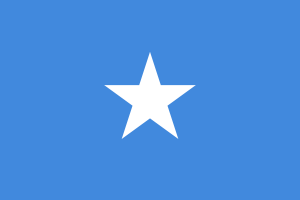Language/Somali/Culture/Geography-of-Somalia
As a Somali language teacher with 20 years of experience, I believe that learning about the geography of Somalia is an essential topic for students who are just starting to learn the language. In this lesson, we will cover the different regions, cities, landscapes, and climate of Somalia. Understanding the geography of Somalia will provide a better understanding of the culture, traditions, and customs of this East African nation.
Regions of Somalia
Somalia is divided into 18 regions or gobols. Each region is governed by an authority known as the Regional Administration, and each region is further divided into districts (or deegmada in Somali). These are the 18 regions of Somalia:
- Awdal
- Bakool
- Banaadir
- Bari
- Bay
- Galguduud
- Gedo
- Hiiraan
- Jubbada Dhexe
- Jubbada Hoose
- Mudug
- Nugaal
- Sanaag
- Shabeellaha Dhexe
- Shabeellaha Hoose
- Sool
- Togdheer
- Woqooyi Galbeed
Major Cities in Somalia
The capital city of Somalia is Mogadishu, which is also the largest city in the country with a population of over 2 million people. Other major cities in Somalia include:
- Hargeisa
- Kismaayo
- Berbera
- Baidoa
- Beledweyne
- Galkacyo
- Garowe
- Las Anod
Landscapes of Somalia
Somalia's landscape is marked by a combination of plains, plateaus, and highlands. Much of the country is arid and semi-arid, with hot and dry summers and warm winters. Somalia has a long coastline along the Indian Ocean, with several important ports.
One of the most famous landscapes in Somalia is the Horn of Africa, which is a peninsula that juts out into the Indian Ocean. The Horn is known for its rugged and rocky terrain and is home to several endangered wildlife species such as Somali wild ass, the African wild dog, and the Somali ostrich.
Climate of Somalia
Somalia's climate is typically hot and dry, with temperatures ranging from 30 to 45°C (86 to 113°F) in most parts of the country. The country experiences two rainfall seasons: the Gu (April to June) and the Deyr (October to December).
The coastal areas of Somalia are generally hot and humid, with more rainfall than the rest of the country. In contrast, the inland areas of Somalia are generally drier and are prone to droughts, which can be devastating for the rural communities who rely on agriculture and livestock for their livelihoods.
Conclusion
In this lesson, we covered the geography of Somalia, including its regions, cities, landscapes, and climate. Somalia's unique geography has had a profound impact on the culture and traditions of the Somali people, and understanding it is key to understanding the culture and society of this beautiful East African nation. I hope this lesson has been informative, and I encourage you to continue learning about Somalia and the Somali language.

